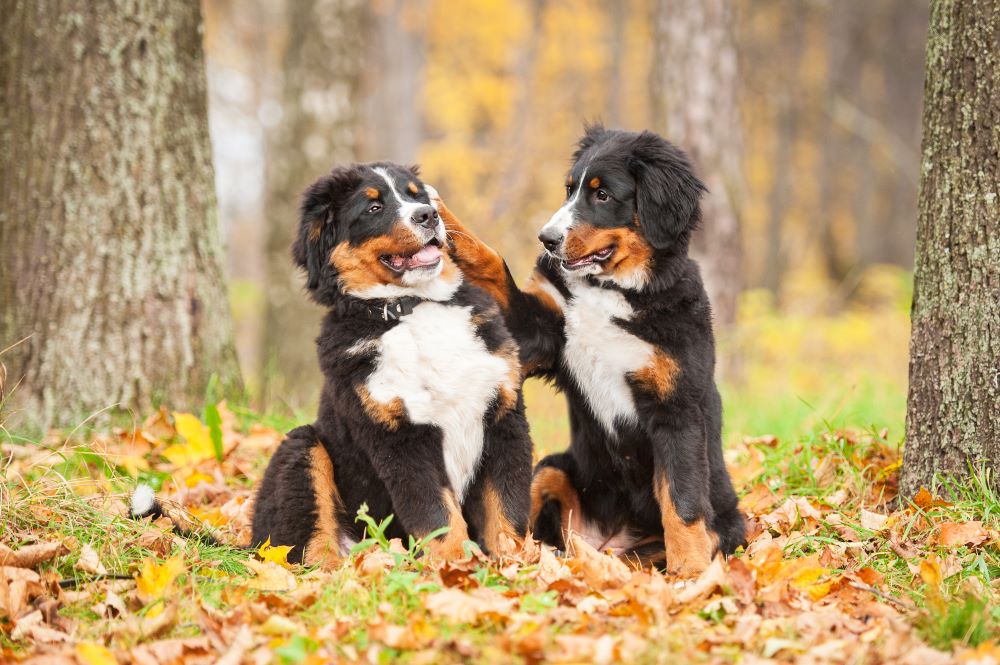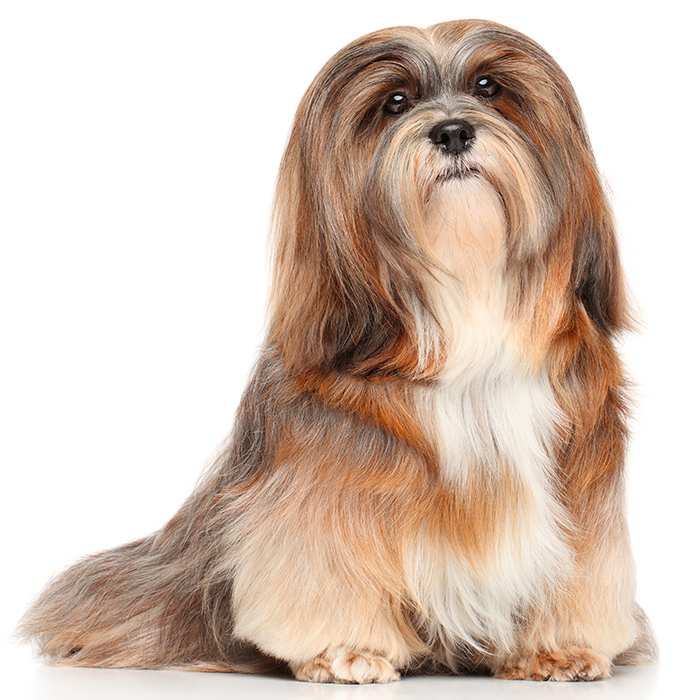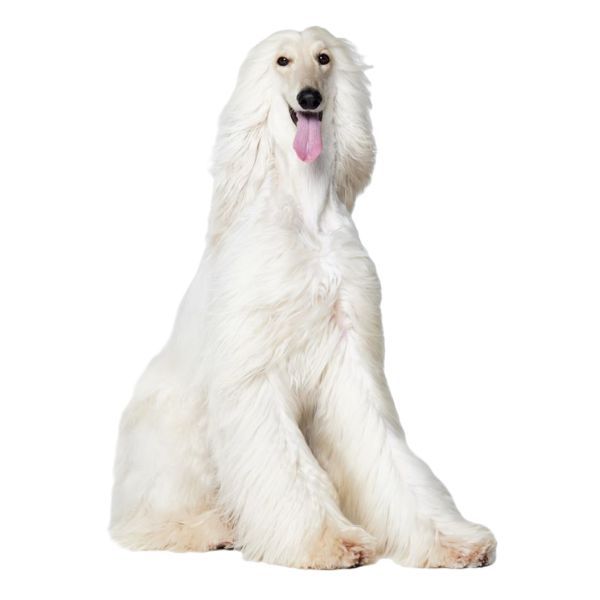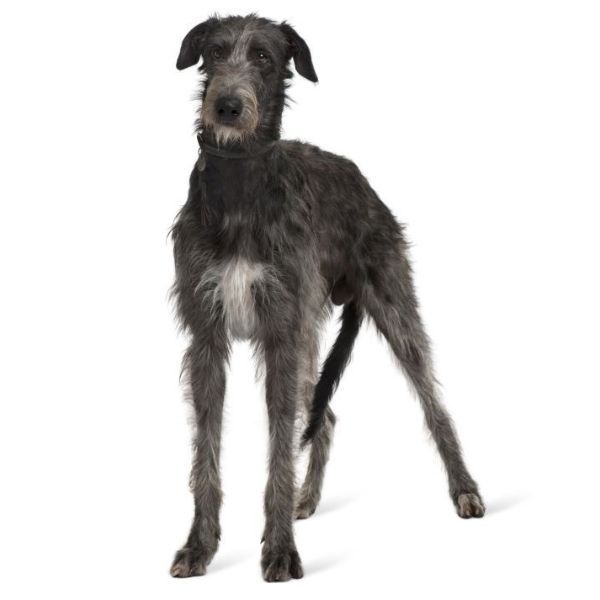Bernese Mountain Dog


| Recommended for | Singles, families |
| Breed Classification | Working group |
| Other names | Berner, Bernese |
| Lifespan | 6 - 8 years |
| Size | Large to giant |
| Temperament | Easy going, friendly, loving |
| Intelligence | High |
| Tendency to bark | Moderate |
| Maintenance Level | Medium grooming needs |
| Health Risk | High probability of health issues during its lifetime, hence it is one of the more expensive breeds to insure. |
Insuring a Bernese Mountain Dog?
Get our award-winning Nose-to-Tail Cover with up to $30k annual benefit limit, up to 90% of eligible vet bills back, and no sub-limits.
Get a quick quote
Is this breed right for you?
Try our breed selector quiz to find out your best matching breed!
Insuring a Bernese Mountain Dog?
Get our award-winning Nose-to-Tail Cover with up to $30k annual benefit limit, up to 90% of eligible vet bills back, and no sub-limits.
Get a quick quote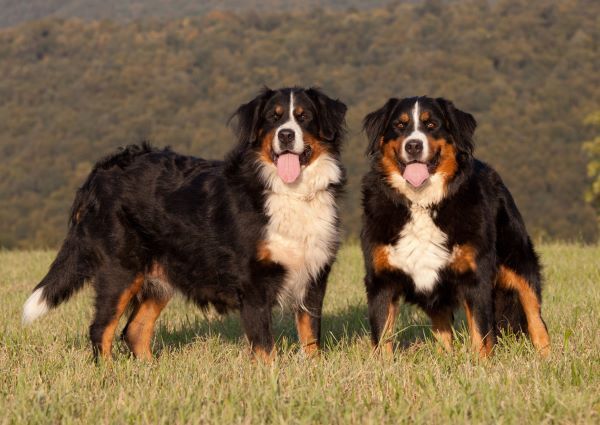
Breed history of Bernese Mountain Dogs
The Bernese Mountain Dog has a long history as a farm companion in Switzerland. Although called a “mountain dog”, the breed developed from the farm dogs in the pre-alpine area of the Canton Berne where farmers could afford to keep fairly large dogs. For over 2000 years, Berners worked alongside farmers, herding cattle, guarding property, and even pulling dairy carts, but principally for protection of the farm against all intruders, alerting the approach of strangers or other animals yet remaining friendly towards all people and animals on the farm.
The original name of the dog was Durrbachler after Durrbach-Gasthaus, the local inn of a small hamlet where this tricoloured farm dog was often sold. From 1910 the breed was renamed Berner Sennenhund. The direct translation of Sennenhund is “Alpine Herdsman’s-dogs”.
In the city of Berne local craftsmen used the Bernese and other big dogs as draught dogs. In the late 19th Century Bernese were still used by some farmers to pull carts loaded with milk and cream to the dairies twice a day and to take goods to market.
The breed’s popularity grew internationally after World War I, and Bernese Mountain Dogs are now valued in many countries as loyal companions, family pets, therapy dogs, watch dogs, and are starting to be seen more frequently in the show ring.
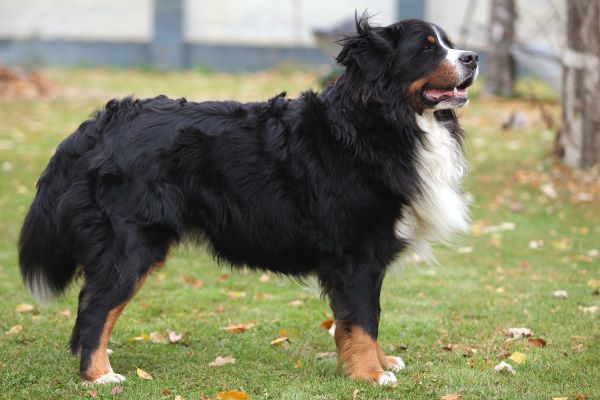
Physical description of Bernese Mountain Dogs
Bernese Mountain Dogs are large, muscular, heavy and usually longer than they are tall. They have a broad chest, a flat top on their head, and medium-sized, triangular ears that are set high and rounded at the top.
The breed is known for its thick, distinctive tri-coloured double coat. This is typically black with white and rust markings, ideally having a white horseshoe shape around the nose, a white “Swiss cross” on the chest, and a white “Swiss kiss” behind the neck, along with rich brown above the eyes, around the mouth, chest and lower legs, and often white feet and tail tip.
| Weight range | Females up to 44 kg; males up to 53 kg |
| Height range | Females up to 63 cm; males up to 70 cm |
| Colours | Black, white, and brown (tri-coloured) |
| Coat length | Medium to long, with a dense undercoat |
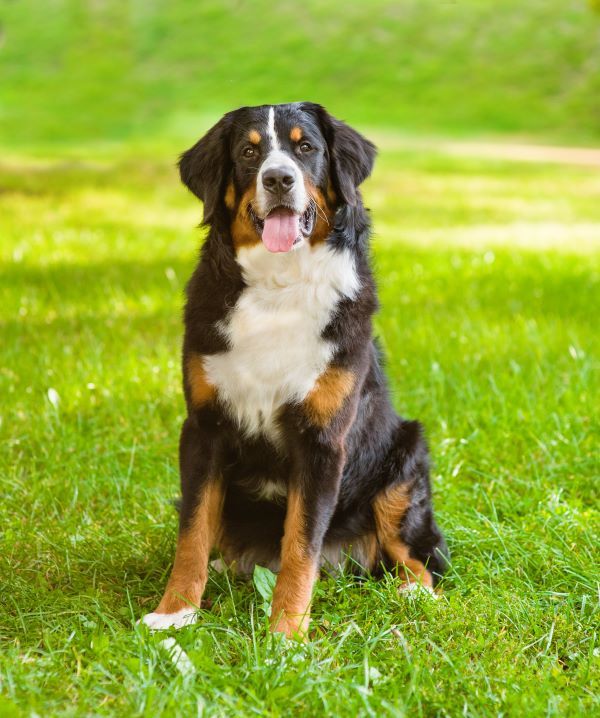
Bernese Mountain Dog personality and temperament
Bernese Mountain Dogs are known for their gentle, friendly nature and strong loyalty to their family. With their soft-hearted and placid approach to people, they make extremely loyal and devoted pets. They thrive on being involved in family activities and are naturally good with children and other pets.
Highly social, they enjoy playful interactions with both people and other animals, and their calm and gentle demeanour makes them excellent therapy dogs. Smart and sensitive, they respond well to training and are perceptive of their family’s emotions, making them not only affectionate but also attuned to the needs of their loved ones.
Though they are a large breed, Berners can adapt well to indoor life if given ample exercise. Generally calm and easy-going, they make wonderful family companions and are likely to alert their families with a bark if left alone for too long or without enough activity. While they prefer companionship, they can be content alone for short periods, showing remarkable adaptability and patience.
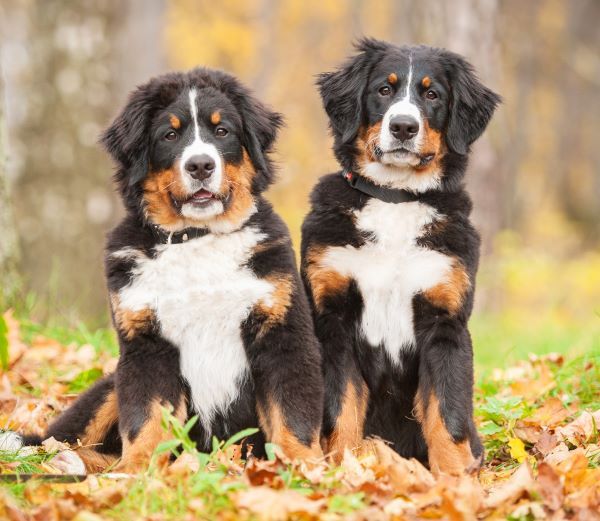
Bernese Mountain Dogs with kids and other pets
Bernese Mountain Dogs are gentle, patient companions, making them particularly well-suited to family life with children. With early socialisation, they tend to get along well with other pets, including dogs and cats, especially when raised together. Their calm, affectionate nature and loyalty to family members make them trustworthy companions. However, due to their size and strength, supervision around young children is advisable to ensure safe interactions.
Berners have a naturally low prey drive, which means they’re generally safe around smaller pets. Early socialisation is key to preventing shyness and ensuring they’re comfortable in a variety of environments. Their calm, non-aggressive demeanour also makes them ideal candidates for therapy work, where their patience and gentle disposition can bring comfort to people in need.
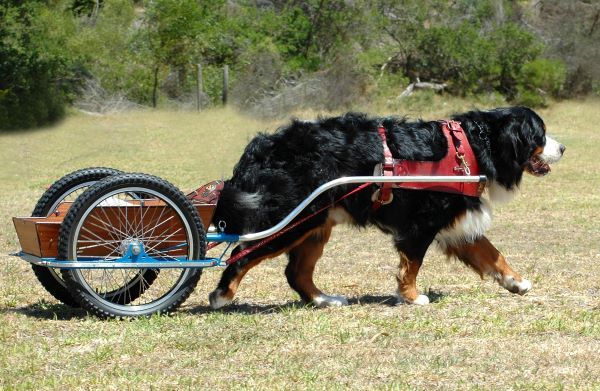
Bernese Mountain Dog training and exercise
Bernese Mountain Dogs enjoy regular, moderate exercise and thrive on outdoor activities like hiking and bush walking, making them ideal companions for families who love the outdoors. Their exercise needs are moderate, so daily walks and occasional outings are generally enough to keep them content and prevent restlessness. They also benefit from social walks with the family, as they love being close to their loved ones and involved in activities.
Intelligent and trainable, Berners respond well to gentle, consistent training due to their laid-back personality. They require moderate mental stimulation to stay engaged and happy, which can be provided through activities, training, or interactive play. Their gentle and calm nature not only makes them great family companions but also well-suited to therapy roles, where their patience and affectionate disposition can truly shine.
| Energy level | Moderate; active outdoors but calm indoors |
| Exercise requirements | Moderate; enjoy regular walks and some adventurous activities |
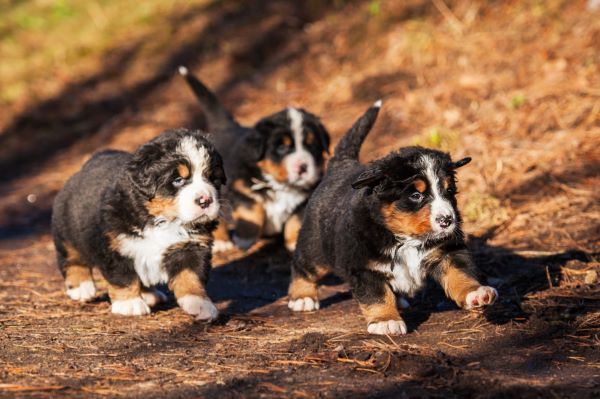
Bernese Mountain Dog feeding and nutrition
A balanced diet tailored to a Bernese Mountain Dog’s age, size, and activity level is essential to support their overall health and well-being. Due to their large build, they often require a diet specifically designed for large breeds to provide the right nutrients for their size and weight. Managing their weight is particularly important, especially in dogs that may be less active, as excess weight can lead to health issues over time.
Routine veterinary visits are recommended to monitor their dietary needs and adjust their nutrition as they age or as activity levels change. Regular check-ups help ensure their diet supports optimal health and prevent weight-related problems, keeping them healthy and active for years to come.
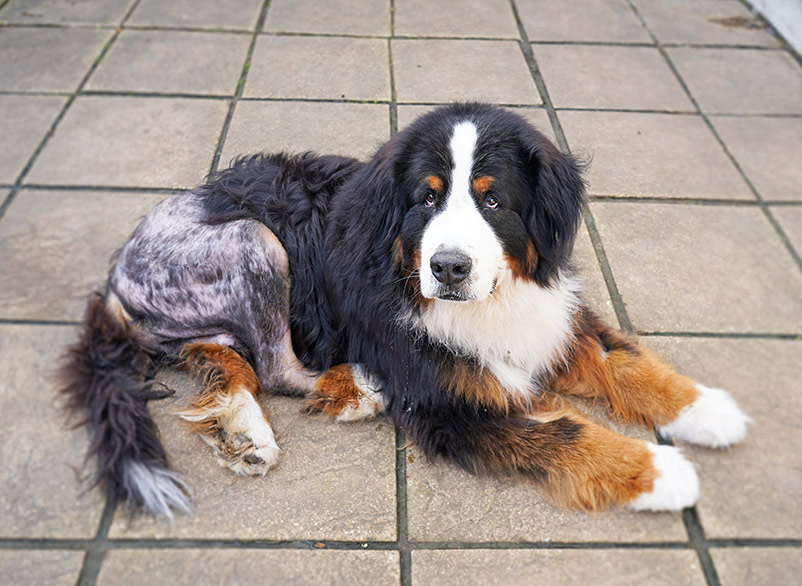
Bernese Mountain Dog care and grooming
Bernese Mountain Dogs have a dense double coat that sheds continuously throughout the year, with shedding peaking in autumn and spring, making weekly grooming essential to manage their coat and keep it healthy. Their thick coat benefits from weekly brushing to remove loose fur, reduce shedding, and keep the coat healthy.
Bathing every two months is generally sufficient to maintain cleanliness, as over-bathing can strip their coat of natural oils. Their coat usually doesn’t require clipping, but routine maintenance helps manage shedding and promotes their overall health and comfort. In addition to coat care, regular grooming routines include nail trimming and dental care to keep them in top condition.
Health issues for Bernese Mountain Dogs
- Von Willebrand’s Disease,quite common in the Bernese Mountain Dogs, causes clotting problems in the blood. Failure for the blood to clot properly can result in a number of serious health issues.
- Progressive retinal atrophy (PRA) is a disease that can occur in Bernese Mountain Dogs and can lead to blindness. The nerve cells at the back of the eye degenerate over time and will cause cataracts to form. If you suspect your dog has signs of PRA, see your vet for observation as soon as possible. If there is still vision in the eye, corrective surgery may be an option.
- Osteosarcoma, an aggressive bone cancer, is one of the most common cancers in Bernese Mountain Dogs. The first sign is lameness, but x-rays are needed to determine if the cause is cancer. It is treated aggressively, often with chemotherapy and amputation.
- Elbow dysplasia is common in large dog breeds and is believed to be caused by varying growth rates in the dog’s elbow. This leads to joint laxity, pain, and lameness. Surgery is available, but medication and weight loss may be prescribed by a vet to help control the pain.
- Hip dysplasia is a condition where the thigh bone and hip joint do not fit together properly, causing pain and lameness. Less severe cases can be treated with anti-inflammatory medications, but surgery may be required for serious cases.
Not all conditions are covered by Pet Insurance. For details of Bow Wow Meow Pet Insurance cover, refer to the Product Disclosure Statement.
What do Bernese Mountain Dog owners claim for the most?
- Gait Abnormality
- Sarcoma
- Mass Lesion
- Dermatitis
- Otitis Externa
Thinking about insuring a Bernese Mountain Dog
Thinking about insuring a Bernese Mountain Dog
Learn moreThinking about insuring a Bernese Mountain Dog
Learn moreFree engraved pet ID tag on sign up3
Customer Satisfaction
21 day cooling off
Easy to use Pet Portal

GapOnly® in vet claims
MORE INFORMATION
Bernese Mountain Dog Club of Victoria: http://bmdcv.com.au/
The Bernese Mountain Dog Club of Western Australia: https://bernesewa.com.au/
Bernese Mountain Dog Club of NSW: https://www.bmdcnsw.com/
Bernese Mountain Dog Club of Queensland: https://www.berneseqld.com/

